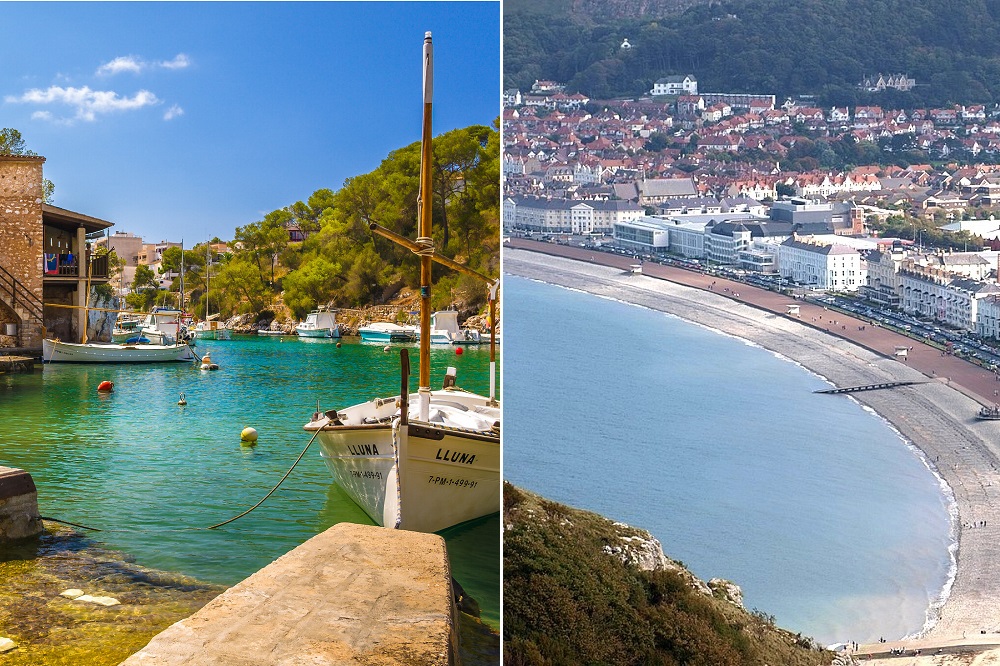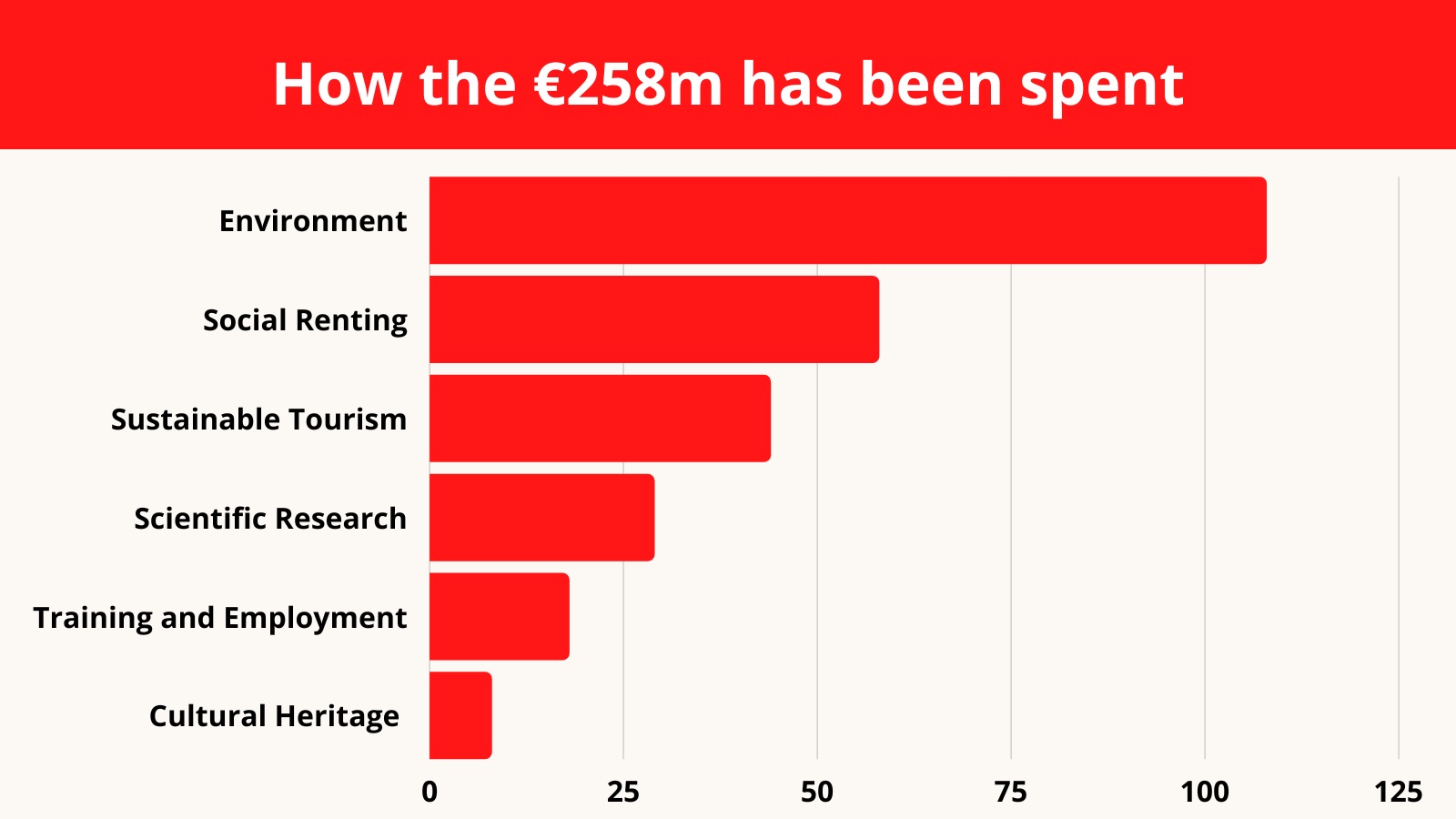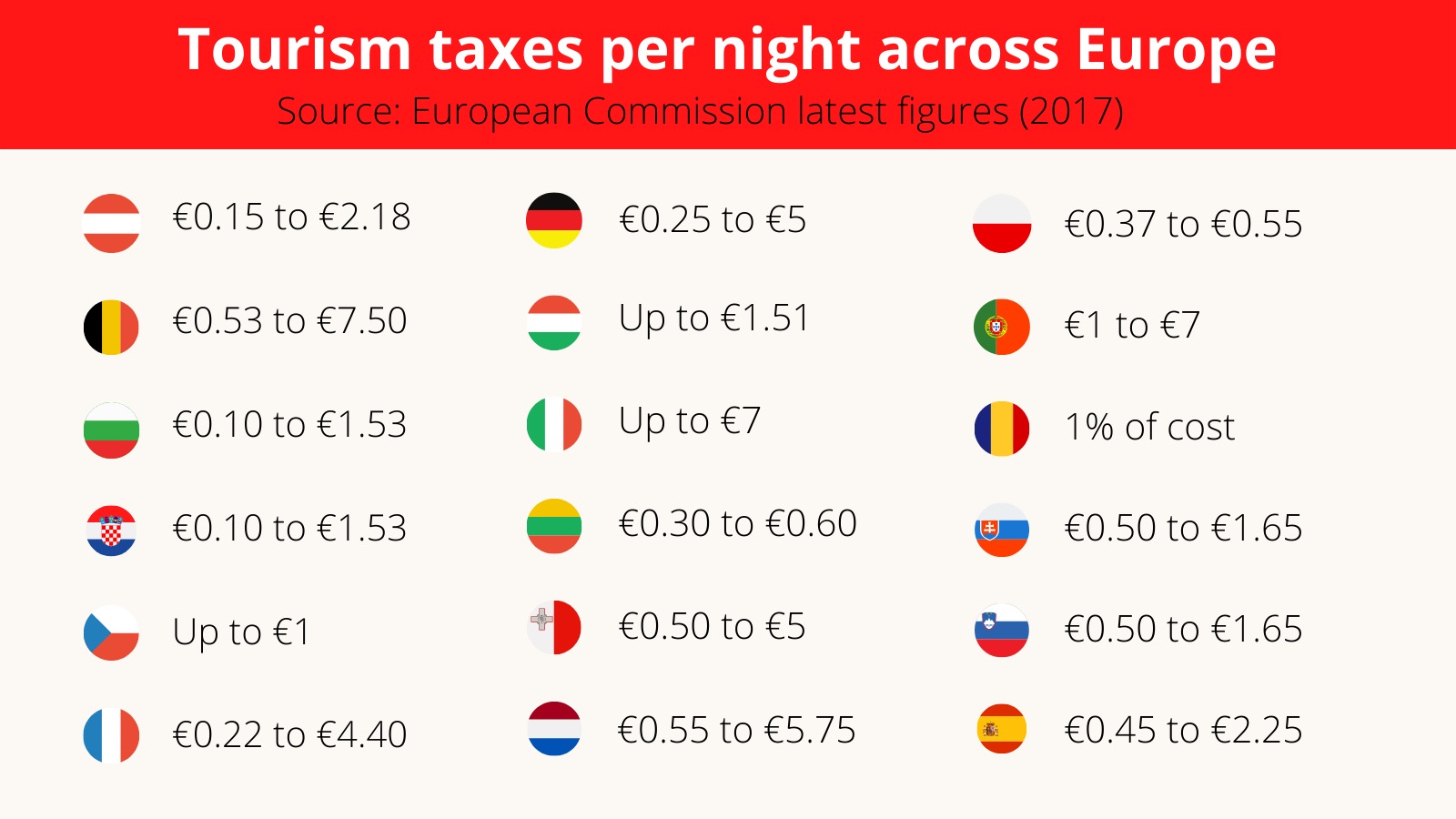What Mallorca, Menorca and Ibiza can teach us about making a tourism tax work for Wales

Luke James
With direct flights connecting Cardiff with Mallorca, Menorca and Ibiza, the Balearic Islands are consistently among the most popular destinations for Welsh tourists.
Tens of thousands travel each year to enjoy clear blue waters, some of Gaudi’s finest architecture or the famous clubbing scene – and, in summer, each of them pay a ‘Sustainable Tourism Tax’ of between €1 and €4 a night.
Spain is among 19 EU member states where tourists pay an occupancy tax but the Balearic Islands used its powers as an autonomous community to introduce its own policy in 2016, following the election of a left-wing government a year earlier.
At the time, the tourism association ABTA warned it could end up “driving away tourists from the islands” and it was cited in the Senedd as a cautionary tale against the introduction of a similar policy in Wales.
The warnings were founded on the Islands’ short-lived experiment with a tourism tax at the start of the millennium which had reduced visitor numbers.
But, six years after the revival of the tax, there has been no drop-off in tourism and it has raised more than €250 million for environmental, social and cultural projects on the islands.
With the Welsh Government set to launch a consultation on its own tourism tax this autumn, Nation.Cymru looked at how the Balearic Islands turned a botched scheme scrapped within two years into a policy which has won round critics and is now held up as an international success story.
‘Greater consensus’
“The difference in the way the two occupancy taxes appear to have been accepted by the tourism sector provides a useful insight into best practices around the introduction and administration of such taxes,” said a 2017 report for the European Commission.
So what changed? Not so much the tax itself as when and how it was introduced, according to Dr Antoni Riera Font of the University of the Balearic Islands.
The Balearic Government’s first attempt at a tourist tax, known as the Eco Tax, was launched against a more difficult economic backdrop than in 2016, he pointed out.
Collection of the tax has also been made easier for accommodation providers. Crucially, having learned the lessons of their first failure, ministers pulled out all the stops to build consensus for the Sustainable Tourism Tax.

“The fund was improved second time around. Above all, it increased the participation of stakeholders in deciding which should be the priority projects for funding,” explained Dr Riera Font.
“The first tax didn’t do that. This time it was done on the basis of greater consensus. Today the tourist tax is widely accepted, not only in society but also among the main actors in the tourism value chain.”
Six representatives of the Balearic Islands’ business community sit alongside government ministers, leaders of local authorities, trade unions and community groups on the committee which decides how the money raised by the tax should be spent.
A leader in one of the business groups represented on the committee said their initial fears had not come to fruition.
“At the beginning, we thought the tax would [reduce tourist numbers], but the clients have accepted it and it hasn’t caused any problems,” said Roberto San Esteban of the association of tourism accommodation of Ibiza and Formentera.
While the tax is “already accepted” among the industry, he said, “not everyone is happy” with the outcomes.
Around a third of the €258 million raised between 2016 and 2019 has been spent on environmental projects, such as restoring natural habitats damaged by mass tourism or conserving traditional species of animals and crops threatened by climate change.

The second highest spend, some €58 million, has been on providing 375 additional social homes across the islands where international buyers are pushing up property prices to the extent that the Balearic parliament voted earlier this year to examine limits on foreign sales.
That’s only 40 fewer than the total number of social homes built in the north of Wales between 2016/17 and 2018/2019, according to Welsh Government statistics. Ceredigion, another holiday home hot spot, didn’t build a single social or council home during that period.
Millions is also spent directly on improving the tourism offer on the islands, through infrastructure projects like a €10m coastal path in Ibiza, the restoration of cultural heritage like the city walls of Menorca or training local people to work in the industry through the creation of a hospitality school.

‘Positive’
Even if not everyone can agree on which projects should be prioritised, the outcomes from the tax, which are listed on a special website in four languages to ensure transparency about how funds are spent, have helped ease tensions between residents and tourists.
“There is going to be some uproar when you do something like this,” Iago Negueruela i Vázquez, the Balearic Islands’ socialist party minister for economy, tourism and work, told Nation.Cymru.
“But I think it’s a way for people to see that the effects of tourism are shared across society. When you implement a tourist tax, which is done across Europe and corrects certain effects, it is a way of bringing tourism closer to citizens.
“Tourism has many positive effects – many – but it also has effects on citizens and I believe this tax has helped citizens say ‘well, thanks to this type of activity, more will be done to protect’ [the Islands]. And if you set the tax at a reasonable price, you don’t affect demand.”

In fact, the number of international visitors to the Balearic Islands increased substantially after the introduction of the tax until the pandemic hit, going from 11.6m in 2015 to 13.7m in 2019.
Welsh visitor numbers followed a similar trend, with 153,000 people flying from Cardiff to the Balearic Islands in 2019 compared to 125,000 in 2015, Civil Aviation Authority figures show.
With tourist taxes starting at €0.10 per person, per night in Bulgaria and rising to €7.50 in parts of Belgium, according to the European Commission, the price of the Balearic Islands’ Sustainable Tourist Tax sits somewhere in the middle of the European league table.
“If you apply a reductionist vision of competitiveness that’s fundamentally about cost, obviously the introduction of a tax will always have an effect on that,” said Dr Riera Font.
“But it’s not only about cost, it is also about the level of social cohesion, the level of environmental protection, the level of security, the level of education and these types of taxes, if the projects on which the money is spent are well selected, could be levers of competitiveness.”
Support our Nation today
For the price of a cup of coffee a month you can help us create an independent, not-for-profit, national news service for the people of Wales, by the people of Wales.






This is anti-English isn’t it?
No, “One of the two…” : I wouldn’t think it was anti-English. (This is an article about successful and sustainable tourism development in the Balearic Islands, and elsewhere in Europe: why, and how, would that be “anti-English”?)
Because that is how it is portrayed whenever it is spoken of in relation to implementation here in Cymru.
What Gareth said 👆. Tory ministers and Tory propaganda papers have been whining about Welsh plans for a tourism tax and calling it anti-English, even though some English regions and resorts have the same thing.
My comment was sarcasm. Pure and simple.
Thanks/ diolch. I’m sure you’ll understand how, in these “interesting times” of ours, I suspected otherwise – I thought that you were actually one of the whiners – and so I started what I feared would be a discussion of opposition. Smiley happy icon, and end, in agreement.
This is a useful and sensible initiative. As written, ““But it’s not only about cost, it is also about the level of social cohesion, the level of environmental protection, the level of security, the level of education and these types of taxes, if the projects on which the money is spent are well selected, could be levers of competitiveness.” Over the past decades – before Covid and air-flight climate awareness reduced my travelling – I’ve been fortunate enough to enjoy holidays in different parts of Europe. I’ve been aware of the tourism tax – there would often be a small… Read more »
‘Ceredigion didn’t build a single social or council home over a three year period’ !
Just do it and stop messing about…
… ah but there’s no one there to take responsibility, only a county council which prefers to do nothing and a host of housing associations who like to take over older properties and fill them with imported people typically from English metropolitan authorities bringing a proportion of social and behavioural problems with them. Nice work if you can get it as there is some kind of “transfer fee” involved and support from that regime down the Bay.
Llandudno looks rather pale, I expect it is the tourism tax that keeps Mallorca looking so colourful…
For me a key take away is the fact that there is participation of the stakeholders in setting the spend topics for the money raised. That is something the Welsh Government needs to be aware of and perhaps push in their publicity before the tax is introduced. Lets ‘sell’ the idea to our population because it is an opportunity for everybody to gain in some way.
I agree…just take their proven method and sell it here…for the price of one ice cream…we could look like a John Brett seascape again…
I think another key factor is showing how the money raised by the tax is spent.
Tourist taxation is just what it says on the tin.
All tourists will be taxed wherever they come from.
Tax income from this source can only be ours in Wales
What Mallorca, Menorca and Ibiza can teach us – people will pay for holidays in the sunshine and cheaper accommodation and beer.